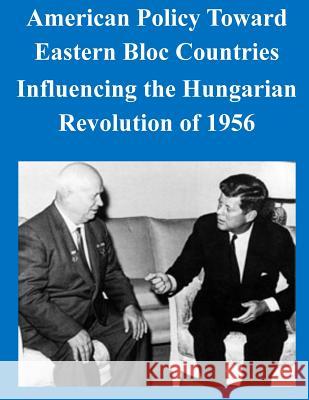American Policy Toward Eastern Bloc Countries Influencing the Hungarian Revolution of 1956 » książka
American Policy Toward Eastern Bloc Countries Influencing the Hungarian Revolution of 1956
ISBN-13: 9781503163515 / Angielski / Miękka / 2014 / 108 str.
American Policy Toward Eastern Bloc Countries Influencing the Hungarian Revolution of 1956
ISBN-13: 9781503163515 / Angielski / Miękka / 2014 / 108 str.
(netto: 56,82 VAT: 5%)
Najniższa cena z 30 dni: 59,50
ok. 16-18 dni roboczych
Dostawa w 2026 r.
Darmowa dostawa!
The Hungarian Revolution exposed the contradictions in United States (U.S.) policy that had existed since the formation of the Psychological Warfare Campaign during the Truman Administration and grown during the Eisenhower Administration. Because of leadership failures and organizational problems within the Eisenhower Administration, this psychological warfare effort encouraged the Hungarian people to rise up in rebellion, even though the Administration was unprepared to support such an uprising and the Department of State had opposed such agitation. Throughout the revolution, Radio Free Europe continued to broadcast messages of support to the fighters on the streets of Budapest. Exploration of the formation and organization of the Psychological Warfare Campaign presents insights into the thoughts of policy makers in the early days of the Cold War. Many of the relationships between governmental agencies provide application for similar interactions exercised when tackling the complex problems of today.
Zawartość książki może nie spełniać oczekiwań – reklamacje nie obejmują treści, która mogła nie być redakcyjnie ani merytorycznie opracowana.











